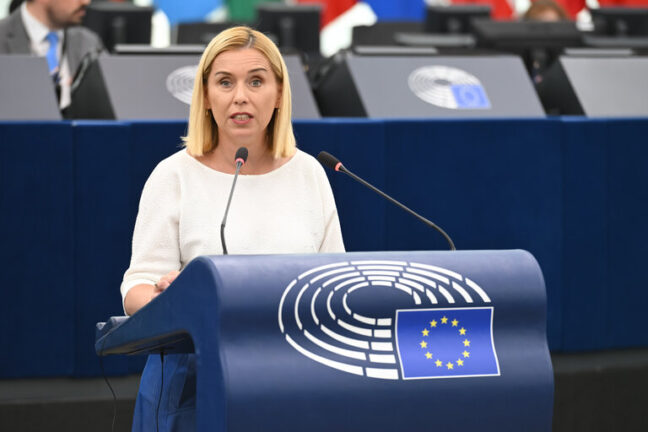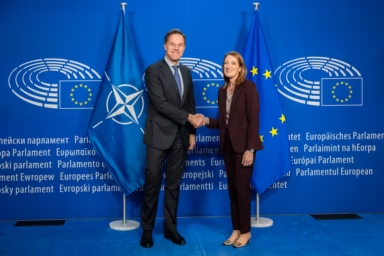Too much power in the hands of European Commission, weakened positions of regional and local authorities in managing funds, or new sources of the EU’s budget. EU Perspectives spoke with MEP Danuše Nerudová (EPP/CZE), one of the Parliament’s co-rapporteurs for own EU resources, about the Commission’s proposal of the Multiannual Financial Framework (2028-2034).
During the interview, Ms Nerudová emphasized that the European Parliament must adopt a more active role in shaping the structure of the future Multiannual Financial Framework (MFF) that was proposed by the European Commission on 16 July. Though she agrees with some of the basic elements like increased defence spending, she believes that the Commission’s proposal lacks real ambition.
You have already criticised that the proposal could sideline the role of the European Parliament and strenghten the role of member states’ governments. Could you go a bit into details in this matter?
When considering the new national plans, the whole decision would be among the European Commission and member states. The role of European Parliament regarding oversight was de facto deleted. Since the very beginning of the whole process we worked closely with the Commissioner Piotr Serafin (Commissioner for Budget, Anti-Fraud and Public Administration) and insisted that the Parliament must maintain its role. However, we were not entirely listened to.
Parliament seeks a more active role
When you say “Parliament’s role“ what exactly do you mean?
The European Parliament retains and will retain control over the negotiation of the next MFF. However, we (MEPs) want to adopt an active role in shaping its structure. And this is not the case with the current proposal.
The budget proposal would give too much power to the Commission. – MEP Danuše Nerudová
MEPs are particularly worried about proposals that would weaken regional and local authorities’ role in managing funds, and pitting farmers against regions, or regions against national governments.
It would also give a lot of power to the Commission. To give you an example: under the current proposal, a member state would set pension reform as a national target. If it fails to materialise, this state could be stripped of agricultural subsidies for instance.
You might be interested
Member states simply should not have this power over EU money alone. Such a system would result in a whole bunch of absurd projects cofinanced by European money as they would be out of touch with local realities and decided solely in the capital. We do not agree with such a principle as the past experience from the pandemic is a negative one.
Cohesion and agriculture sidelined
How about the basic structure of Commission’s proposal which includes more money on defence, digitalisation, and modern technologies? Do you agree?
In general, the Commission’s proposal does not include any additional money compared to the current MFF. It lacks any real ambitions. Once we deduct the NextGenerationEU debt repayments and take into account inflation, we have more or less the same amount of money as in the MFF 2021-2027.
Regarding the increase of defence money: yes, we wanted this from the very beginning. However, I have a highly critical stance on the fact that the draft budget does not allocate sufficient funds for Cohesion Policy and Common Agricultural Policy. I am also sceptical to the new CORE (Corporate Resource for Europe) instrument. In fact, CORE would not constitute a new Europe-wide tax but would rather bring back the so-called single market levy. For me, it is just a sort of charge allowing them to enjoy the single market. In my opinion, European companies should not be required to pay such a levy because they are still facing obstacles on the single market.
What is your view on the Commision’s proposal to collect new taxes on tobacco, e-waste, and e-commerce?
I do support the excise duties on tobacco. New forms of harmful tobacco products appear on the market and often are not properly taxed or not taxed at all. This must stop. Regarding e-waste and e-commerce taxes, I guess the Council will easily agree on that. However, we are talking about a tiny amount of money.
Some new forms of harmful tobacco products are often not properly taxed and this must stop. – MEP Danuše Nerudová
To sum it up, these new sources of revenue for the Union’s budget could also help member states’ budget consolidations. That in turn would lower the pressure on GNI contributions including in populous and fiscally responsible member states like Germany. Gross National Income (GNI)-based contributions from member states is the largest revenue source for the EU budget.











